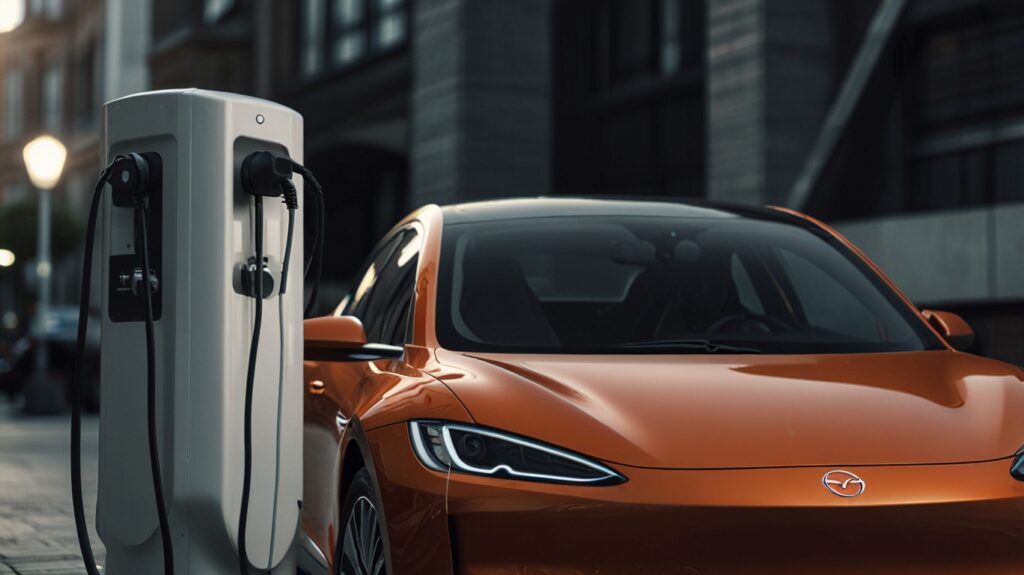The Future of Electric Vehicles: Powering a New Era in Transportation
The electric vehicle (EV) upset is pushing ahead at max throttle. As ecological worries develop, so does the interest for economical transportation arrangements. EVs offer a perfect, productive option in contrast to conventional vehicles. When a specialty market, electric vehicles are presently extending quickly across worldwide business sectors, acquiring prevalence among the two buyers and organizations. With propels in innovation, government support, and new foundation advancements, the fate of electric vehicles is looking more splendid than any time in recent memory. We should investigate where the EV business is going and what transforms we can anticipate before very long.
1. The Growth of Electric Vehicles Adoption
Electric vehicles have made some amazing progress starting from the main models were presented. At first, their significant expenses and restricted range kept them far off for most buyers. Nonetheless, late headways in battery innovation have worked on both the reach and moderateness of EVs. More individuals are presently picking EVs as their everyday method of transport, thanks by and large to diminishing battery expenses and government motivating forces.
State run administrations overall are pushing for more noteworthy EV reception to diminish discharges. Numerous nations are offering appropriations, tax cuts, and refunds to make EVs more open. Some have even set aggressive focuses to eliminate internal combustion vehicles out and out. Norway, for instance, means to end the offer of new gas powered motor vehicles by 2025. The Assembled Realm intends to follow by 2030. As additional nations put forth comparable objectives, the shift to EVs is supposed to speed up.
2. Advances in Battery Technology
Battery innovation is at the core of the EV unrest. Early electric vehicles experienced restricted range and long charging times. Notwithstanding, ongoing enhancements in lithium-particle battery innovation have helped address these issues. The present EVs can travel many miles on a solitary charge. This upgraded range is assisting EVs with rivaling gas fueled vehicles.
Strong state batteries are an interesting improvement not too far off. Not at all like lithium-particle batteries, strong state batteries have a strong electrolyte, making them more secure and possibly longer-enduring. They likewise guarantee quicker charging times, which could be a distinct advantage for EVs. Numerous vehicle makers are putting vigorously in this innovation, and some hope to deliver strong state batteries before the decade’s over. If fruitful, these batteries could make EVs significantly more alluring to customers.
3. Charging Infrastructure and Speed of Electric Vehicles
One more significant test for EV reception is charging foundation. As additional individuals purchase electric vehicles, the interest for charging stations develops. While urban communities frequently have a lot of stations, country regions are as yet inadequate. Legislatures and privately owned businesses are attempting to grow charging organizations and make charging stations more open.
Quick charging innovation is likewise progressing quickly. Conventional chargers can require hours to re-energize an EV. Be that as it may, super quick chargers can diminish this time fundamentally, permitting vehicles to re-energize in just 15-30 minutes. Tesla’s Supercharger network is now driving the way, and different organizations are dashing to make up for lost time. Sooner rather than later, far and wide admittance to quick charging stations will make EV possession more advantageous.
Remote charging could be another large turn of events. This innovation would permit EVs to charge basically by stopping over a charging cushion. While still in beginning phases, remote charging could make EVs much more advantageous, particularly in metropolitan regions.

4. Integration with Renewable Energy
Electric vehicles are just basically as green as the energy they use. Numerous EVs today actually depend on power produced from petroleum derivatives. To boost the ecological advantages of EVs, it’s pivotal to incorporate them with sustainable power sources. Sun based, wind, and hydropower are turning out to be more broad, and numerous nations are putting resources into cleaner energy frameworks.
One fascinating improvement is involving EVs as a stockpiling answer for environmentally friendly power. This is known as Vehicle-to-Framework (V2G) innovation. With V2G, EVs can store overabundance environmentally friendly power and feed it back into the framework when required. This makes a more steady and proficient energy framework. Some experimental runs programs are now investigating V2G, and it might assume a crucial part later on energy scene.
5. Autonomous Electric Vehicles
Independent driving innovation is quickly progressing, and the blend of self-driving and electric vehicles is a consistent following stage. Many organizations, including Tesla, Google’s Waymo, and significant automakers, are dealing with independent electric vehicles (AEVs). These vehicles could reshape metropolitan transportation by lessening the requirement for individual vehicle proprietorship. All things being equal, armadas of independent EVs could give shared transportation on request.
For urban communities, AEVs could mean less gridlock, decreased air contamination, and more secure roads. Envision an armada of electric, self-driving cabs that can get travelers, drop them off, and re-energize themselves depending on the situation. While completely independent EVs are not yet broadly accessible, progress in this space is moving rapidly. Specialists accept that independent electric vehicles could turn into a typical sight inside the following ten years.
6. The Role of Big Data and Artificial Intelligence
Enormous information and simulated intelligence are assuming a significant part in the EV business. Overwhelmingly of information, man-made intelligence can assist with upgrading EV execution, oversee battery duration, and foresee support needs. Man-made intelligence can likewise improve the effectiveness of charging networks, assisting with deciding the best areas for charging stations in view of client interest.
Also, information driven experiences permit vehicle makers to further develop vehicle configuration, foresee client inclinations, and upgrade security. Computer based intelligence frameworks are likewise fundamental for independent driving, permitting vehicles to break down their environmental factors and go with constant choices. As computer based intelligence innovation propels, it will keep on being a vital driver of development in the EV business.
7. The Environmental Impact of EVs
Electric vehicles offer a cleaner option in contrast to conventional internal combustion vehicles, yet they are not without ecological worries. The mining of lithium and different materials for batteries has natural and social effects. Be that as it may, as innovation progresses, so does the emphasis on practical obtaining and reusing of battery materials. Vehicle makers and states are chipping away at ways of working on the lifecycle of EV batteries, from creation to removal.
Also, as sustainable power turns out to be more normal, the carbon impression of charging EVs will diminish. The mix of cleaner energy sources and advances in reusing will go with electric vehicles a much greener decision.
Conclusion
The eventual fate of electric vehicles is loaded up with guarantee. Progresses in battery innovation, charging framework, and environmentally friendly power mix are assisting with tending to the difficulties confronting EV reception. As state run administrations support the change to clean energy and organizations put resources into imaginative arrangements, the EV market is supposed to quickly develop. From independent heading to V2G innovation, the following couple of many years will carry massive changes to how we drive and power our vehicles. The ascent of electric vehicles addresses a crucial shift towards a more economical and effective future in transportation.








